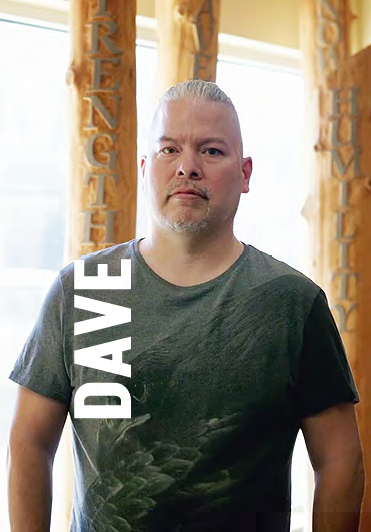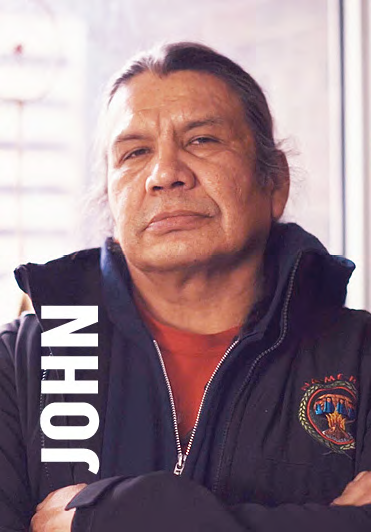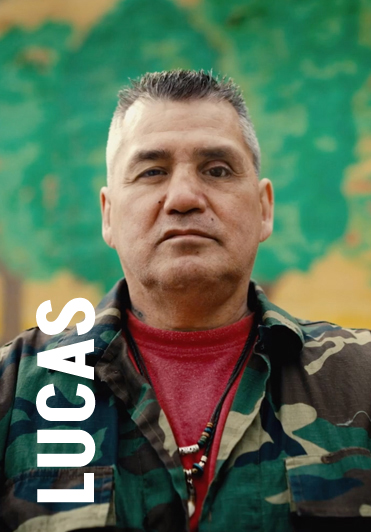Chris is Anishnaabe/Ojibway and originally from Wiikwemikoong Unceded Territory, with ties to M’Chigeeng/West Bay and Sagamok Anishnawbek. Parts of his family are residential school survivors. Another part is chiefs and warriors. His mother wanted to get her family into a new environment and moved to Peterborough when Chris was a young child.
At an early age, Chris fell in love with hockey. It was everything to him. As he got older, it became too expensive for his mother, who was a single parent and at times struggled with alcoholism. He had to stop playing. Chris lost focus, grew angry, and without strong guidance, dropped out of high school. This was followed by more choices that led to a dark
place. It got to the point where he was sent to live in a youth shelter. Not long after, Chris was dealing drugs, got caught, and was incarcerated for a short while. It was the best thing to happen. With no desire to return to prison or that lifestyle, he started to clean up and rehabilitate himself.
He was able to reconnect with his culture through pow wow, singing, dancing, and building community. This new way of life opened Chris up to possibilities. He always had an interest in acting and storytelling. He made a plan and was accepted into the Centre for Indigenous Theatre in Toronto. He then went on to the prestigious National Theatre School
of Canada in Montreal. After six years in school, moving back to Ontario with no money and nowhere to stay, he was accepted into Na-Me-Res. He graduated to Sagatay and then to permanent housing at the Homewood property.
“They gave me hope and a welcoming home. The language classes, the drumming, the pow-wow, the life skills classes. It is more than a place to stay. You are given the tools, the discipline, and cultural connection to live a better life. It’s like your North Star.”
Today Chris is in his first year of the Birmingham Conservatory at the Stratford Festival. He hopes to stay with The Festival and pursue storytelling on their stages, as well as writing and sharing his own stories.





